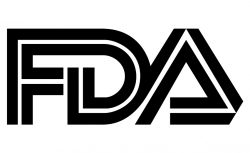Food Safe Silicone
Is Silicone Food Safe?
When producing high-performance O Rings and bespoke sealing solutions for the food process industries, protection has to be the priority. M Barnwell Services provide products manufactured from a broad selection of rubber materials and include Silicone.
However, how prudent is silicone sealing, and how is consumers’ health protected?
At M Barnwell Services our sealing proficiency incorporates not just conformity with a variety of governing regulations, but also a strong knowledge of our customers and the vital execution of rubber elements.
Silicone (VMQ)
Silicone (Polydimethylsiloxane) is a synthetic, man-made polymer. It is the article of Carbon and Silica heated together at high temperatures. It is shaped from natural elements of Hydrogen and Carbon called Hydrocarbons.
Silicone-based elastomers are distinguished by numerous key features, including:
- Low and high-temperature reluctance
- Chemical reluctance
- High compressibility
- High flexibility
- Water resistance
The everyday household products can emphasize the temperature resistance and execution of silicone that is designed for the food industry – ice cube trays and cupcake moulds. Silicone can be moved from the freezing temperature of a freezer to the temperature of a hot oven without experiencing any structural variations that may influence its execution.
The amount of silicone installations we come across in everyday life is unbelievable, they include:
- Aeroplane engines
- Cupcake Moulds
- Ice cube trays
- Swimming goggles
- Kitchen utensils
Silicone coatings and seals can be found in virtually every corner of our lives.
Silicone has been extensively established by a variety of industries (including food industry) due to its magnificent thermal, mechanical, and chemical properties which make the article highly reliable.
Food Safe Silicone – FDA
The Food & Drug Administration (FDA) is accountable for control of the Food and Pharmaceutical industries for the purpose of protecting people from food and drug dangers. Despite the fact that the FDA is a party of the US government, and its authority only relates to the US, its rules and regulations are established as a recognizable global standard.
The fact that Silicone is resistant to severe chemicals and temperatures conclusively indicate that it doesn’t respond to eatables or any further media confronted in an operation line.
The employment of silicone sealing doesn’t generate any dangerous by-products that could have a potential adverse effect on the health of the employees or consumers. This is crucial when considering silicone as a food-safe article.
Despite that, as specified by their Food Code, the article is solely considered ‘food-safe’ if it’s FDA compliant. This indicates ‘acceptable to the regulatory authority (FDA) based on a determination of conformity with principles, practices and generally recognized standards that protect public health’. Furthermore, there is no automatic versatile ‘approval’ of all silicone articles or producers. Even though, the features of silicone make it remarkably persistent and resistant.
Our Recommendations
Decisively, this indicates that producers of silicone elements must prove the compliance (on an individual basis) of the completed product. M Barnwell Services supplies articles from a selection of over 40 FDA compliant elastomer material grades.
If you would like any additional information about our range, download our catalogue or contact a member of the team.
E & OE. M Barnwell Services endeavours to make sure that all the content is correct. Information has been gained from manufacturing partners.
